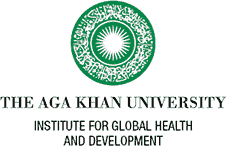Deployment of COVID-19 Vaccines for Refugees and Migrants: Mixed-method Multi-country Study
Background
An unprecedented 82 million, or approximately 1 in 30 people, have been forcibly displaced from their homes. This number is expected to increase due to the changing nature of conflict and compounding effects of climate change. Moreover, ‘time-in-transit’ or the time starting from leaving home to final resettlement or return, is increasing due to protracted asylum procedures, making health of displaced populations a global priority. Yet, little is known about the health needs of people in transit, including regular and irregular refugees/migrants.
Past research on immunisation coverage demonstrates structural-level barriers in vaccine uptake amongst migrants and refugees, including disruption of health services delivery, and individual-level barriers, including access, knowledge, attitudes, and practices. Vaccine accessibility is further compromised due to discrimination and legal status of the migrants. Regardless of the proven challenges, there are gaps in the evidence on needs and determinants of COVID-19 vaccination and coverage among regular and irregular refugees/migrants. These gaps prevent advocacy towards inclusive vaccination policies, and ultimately undermines effective rollout.
The study aims to produce evidence of the barriers and enablers of COVID-19 vaccination for regular and irregular refugees/migrants in six low- and middle-income countries known to host significant refugee and migrant populations, and provide an estimation of vaccine coverage amongst these groups versus non-immigrants/non-refugees. These countries include:
- Ecuador (Latin America)
- Nepal (South Asia)
- Pakistan (South Asia)
- Philippines (South-East Asia)
- Rwanda (Sub-Saharan Africa)
- Tajikistan (Central Asia)
The Institute for Global Health and Development is responsible for implementing this project in Pakistan and Tajikistan.
Objectives
The objectives of the study include:
- Understanding the status of COVID-19 vaccine access and uptake, knowledge and perspectives, attitudes and practice, challenges and enablers amongst refugees and migrants regardless of their status in six countries.
- Estimating the proportion of refugees and migrants reached by COVID-19 vaccination campaigns in these countries and measuring the magnitude of inequity compared with the general population.
Our hypothesis is that refugees and migrants are not vaccinated against COVID-19 at the same rate as the general population in their host countries and that the COVID-19 vaccination coverage of refugees and migrants is limited by several structural- and individual-level barriers.
Research Team
This project will be executed by the Institute for Global Health and Development (IGHD), Aga Khan University in Pakistan and Tajikistan.
The project is powered by the generous funding from World Health Organization and through its partnership with Université de Genève.
Dr Zulfiqar A Bhutta, Distinguished University Professor and Founding Director, IGHD and Dr Jai K Das, Assistant Professor, Department of Paediatrics and Child Health and Assistant Director, IGHD are the lead investigators.


